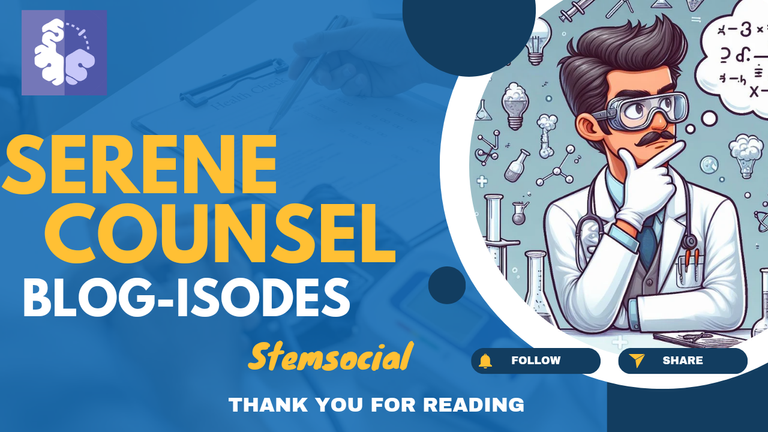Let's Explore our Memory: Forgetting - Other Theories.
We began looking at the issue of forgetting when it comes to our memory in the previous blogisode. We talked about the decay theory. Another theory of forgetting is interference.

In this perspective, a forgotten memory is neither lost nor damaged, but is only misplaced among a number of other memories, that interfere with the recovery of the one that was sought.
For instance, our inability to remember the name of a high school friend can be compared to what happens when a clerk cannot find a letter he received a year ago. The letter is still somewhere in his files, but it has been hopelessly buried in a mass of other letters that he filed both before and since.
Memorial interference is easily demonstrated in the laboratory.
One classical example is retroactive inhibition in which new learning makes it harder to recall the old.
In a standard study, a control group masters some drudgery material like list of meaningless syllables (List A), and then examined after a given duration.
On the other hand, the experimental group learns similar to the control group and gets tested after the same length of time for retention.
Moreover, it is also required to learn another list (List B) which occurs in between as they are recalling.
The general outcome is that experimental groups normally perform worse than others because List B comes in between during memory recall for List A.
Now, Proactive interference is another effect of executing proactive inhibition.
The common method is to let an experimental group go through the learning of List A first, and then List B, followed by testing for recall of List B, after an appropriate period of retention.
In this case, it is important to compare with a control group that only learns List B. Usually, the experimental group performs poorly on the recall test.
So What's The Difference Between The Two Theories we've Discussed?
The Decay theory holds that the memory trace gradually fades away with time, while
interference asserts that the trace gets lost among other traces acquired both before and after.
Other school of thoughts argues that the memory success or failure depends on the recall retrieval cues presented at the time of recall.
We know that recall will be interrupted if there is a change in retrieval cues.
But can this effect explain why forgetting increases with an increasing retention interval?

For the hypothesis of cue changing as the major factor to still be true, we should assume that such changes become more likely with time.
Several examples could illustrate this: memories formed in one place can change when the area around it evolves over time, for example some houses are knocked down and others built. The alteration affects physical cues available and reduces possibility of retrieval.
It seems logical to infer from this that not all cases can be explained entirely by means of the retrieval cue theory.
As time elapses since learning, forgetting becomes greater even if there is no alteration in retrieval conditions.
Some evidence comes from studies with animal subjects where all aspects of the situation are under the experimenter's control.
In one experiment, rats were instructed to run along an alley for food reward, and the experimenters then waited for them to forget about this instruction. Out of these, others were tested after day one: while others after 68 days. In terms of all the physical conditions of the experiment; such as alley’s lighting and location, animal weight as well as its home cages- everything remained similar from beginning till end.
However, retention interval heavily impacted on this result. The animals that had taken part in tests two months later appeared to be more uncertain when running through their respective lanes than what they used to be like before; the possibility is that it seemed they had lost memory of what they were supposed to do.
Some researchers appeal to the retrieval cue hypothesis to explain the phenomenon of childhood amnesia - the fact that most of us can't recall events of our very early childhood.
When college students are asked to report any events they can remember that occurred in early life, the average age of their earliest recollection is about three and a half years.
One possible cause is a massive change of retrieval cues.
The world of the young child is utterly different from the world she will occupy some ten or fifteen years later. It is a world in which tables are hopelessly out of reach, chairs can be climbed upon only with great effort, and adult are giants in size and gods in ability. Whatever memories the child may store at this time are necessarily formed and encoded within this context; thus the appropriate retrieval context is necessarily absent from the adult's environment.
Another alternative hypothesis appeals to encoding differences rather than to
changes in retrieval cues.
According to some authors, infants and very young children store memories-especially explicit memories, less efficiently than
older children and adults.
This may be because some relevant neural structures are not yet suficiently mature.
It may also be because these very young children have not yet developed the necessary schemas within which experiences can be explicitly organized, encoded, and rehearsed.
In sum, we must conclude that each of the theories of forgetting proposed
thus far can account for some of the aspects of the phenomenon but not all.
Interference and change of retrieval cues play a major role, but neither of them can
readily explain why forgetting increases with the passage of time.
While the evidence for decay is by no means solid, it nevertheless seems reasonable to suppose that some such process does occur and is partially responsible for the effect of retention interval.
The Bus Stops Here for today:
Thank you, friends, for staying with me through these blogisodes. Your thoughts and opinions are always welcome and appreciated. I'd be happy to hear them. We will build on this in tomorrow's blog-isode. Until then, stay safe, friends.

References and Links:
https://psychologyconcepts.com/forgetting/
https://www.sciencedirect.com/topics/neuroscience/interference-theory
https://www.verywellmind.com/interference-definition-4587808
https://www.studysmarter.co.uk/explanations/psychology/basic-psychology/cue-dependent-forgetting/
https://pubmed.ncbi.nlm.nih.gov/8538443/
https://studymind.co.uk/notes/explanations-for-forgetting-interference/
!GIF !MEME !WEED
Via Tenor
Credit: orionvk
Earn Crypto for your Memes @ HiveMe.me!
Thanks for your contribution to the STEMsocial community. Feel free to join us on discord to get to know the rest of us!
Please consider delegating to the @stemsocial account (85% of the curation rewards are returned).
Thanks for including @stemsocial as a beneficiary, which gives you stronger support.